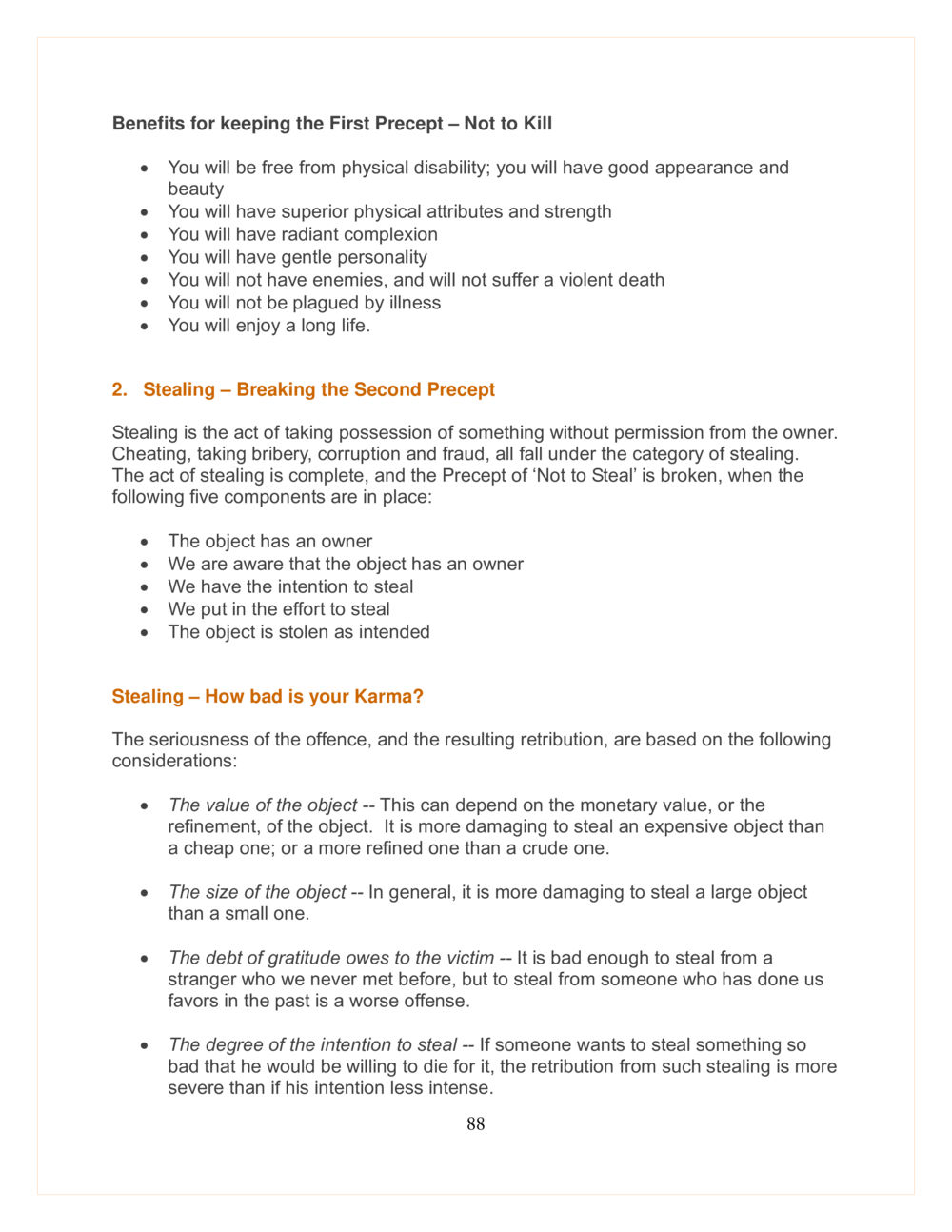Understanding the First Two Precepts of Buddhism : หน้า 88/115
DMC Translor’s handbook : หน้า 88/115 Explore the benefits of adhering to the First Precept of Buddhism and the implications of breaking the Second Precept regarding stealing.
0 ครั้ง

สรุปเนื้อหา
The First Precept emphasizes the importance of not killing, which leads to various physical and mental benefits, including a long life and good health. Meanwhile, the Second Precept addresses stealing, outlining what constitutes theft and the consequences based on the severity of the act, including the monetary value and intentions behind stealing. Overall, these precepts guide individuals toward moral living and understanding karma. For more information, visit dmc.tv.
หัวข้อประเด็น
-Benefits of First Precept
-Understanding Stealing
-Consequences of Breaking Precepts
-Karma and Ethical Behavior
-Moral Living in Buddhism
ข้อความต้นฉบับในหน้า
Benefits for keeping the First Precept—Not to Kill
• You will be free from physical disability; you will have good appearance and beauty
• You will have superior physical attributes and strength
• You will have radiant complexion
• You will have gentle personality
• You will not have enemies, and will not suffer a violent death
• You will not be plagued by illness
• You will enjoy a long life.
2. Stealing — Breaking the Second Precept
Stealing is the act of taking possession of something without permission from the owner. Cheating, taking bribery, corruption and fraud, all fall under the category of stealing. The act of stealing is complete, and the Precept of ‘Not to Steal’ is broken, when the following five components are in place:
• The object has an owner
• We are aware that the object has an owner
• We have the intention to steal
• We put in the effort to steal
• The object is stolen as intended
Stealing — How bad is your Karma?
The seriousness of the offence, and the resulting retribution, are based on the following considerations:
• The value of the object -- This can depend on the monetary value, or the refinement, of the object. It is more damaging to steal an expensive object than a cheap one; or a more refined one than a crude one.
• The size of the object -- In general, it is more damaging to steal a large object than a small one.
• The debt of gratitude owes to the victim -- It is bad enough to steal from a stranger who we never met before, but to steal from someone who has done us favors in the past is a worse offense.
• The degree of the intention to steal -- If someone wants to steal something so bad that he would be willing to die for it, the retribution from such stealing is more severe than if his intention less intense.
หน้าหนังสือทั้งหมด
หนังสือที่เกี่ยวข้อง
Load More



















































































































